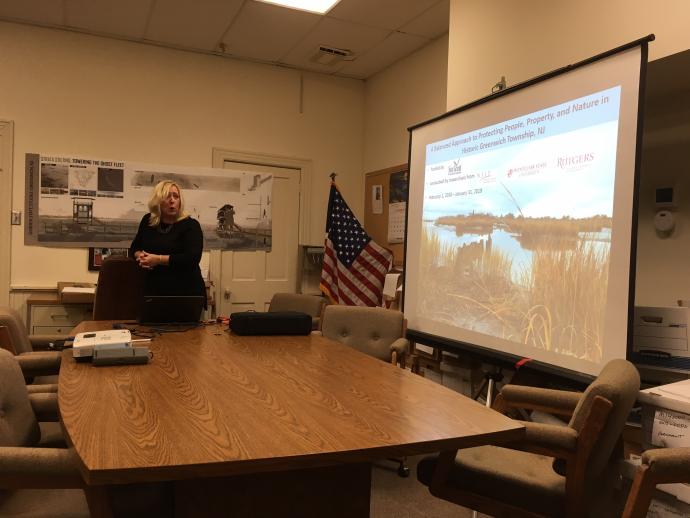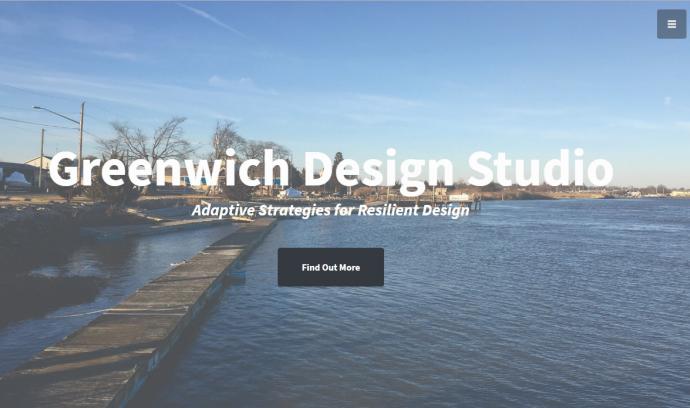
Colette Santasieri, PhD, presents the results of a 2-year resilience research study to citizens of Greenwich, NJ, a township increasingly exposed to the impacts of flooding and storm surge.
Titled At Risk: Healthy Coastal Ecosystems and Resilient Communities and Economies in an Era of Climate Change: A Balanced Approach to Protecting People, Property and Nature in Historic Greenwich Township, New Jersey, the study explored design and engineering strategies to:restore and enhance the natural environment focusing on tidal wetlands; improve flood protection in the village; and protect upland habitats, farmland and historic structures and sites. The project goal was to develop design and engineering approaches that have the power to protect people, property, and natural resources, strengthen the economy, and enhance the quality of life, not only in Greenwich Township, but in other coastal communities throughout the state.

The project also included a one-semester design studio at the NJIT College of Architecture and
Design. The studio explored a series of approaches to help improve the physical and economic resilience of Greenwich, and the results have been loaded into an online platform:
www.greenwichdesignstudio.org
The studio’s three phases – Research, Strategies and Design – are presented as a series of YouTube videos. Collectively, the videos describe a process that could be implemented by other jurisdictions – on the Delaware Bay and elsewhere – that are grappling with economic revitalization in the face of increased flood risk.